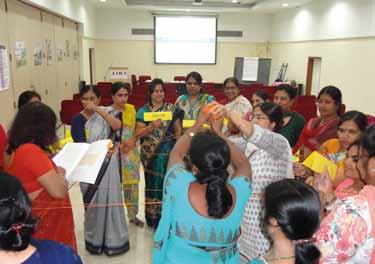
Description of the project: Minimum Initial Service Package in SRH Services is a post disaster adaptation strategy that includes coordination, services and planning. It ensures that women’s reproductive health needs are met, they have access to minimal health care services like prenatal care, assisted delivery, emergency obstetric care and avoid unsafe abortion. The initiative also ensures that districts and states have MISP integrated in every disaster management plan. Women leaders and volunteers from the community are selected for the Train of Trainers in MISP and encouraged to share their knowledge with wider networks.
Climate Impact: There has been significant increase in the number and intensity of disasters during the past decade as a result of increasing global warming, sea level rise and other seasonal changes. Within India, there are regions facing drought and flood in the same year due to the impacts of climate change. These unforeseen disasters take special toll on women and girls. It is estimated that in any displaced population, about 4% of the population is pregnant, of which, 15 % of the women experience obstetric complications risking their lives. Unfortunately, prenatal and emergency obstetric care is often unavailable to the survivors and disaster management services barely take the needs of women into account.
Gender Impact: Climate change adaptation plans need to be gender responsive, have a participatory and transparent approach as well as take into account the needs of vulnerable groups. Studies have revealed that women and children suffer the brunt of the chaos during most post disasters and reproductive health services are often unavailable. Quite a number of youngsters become more susceptible to HIV infection and sexual exploitation post disaster probably due to the lack of precautionary tools and depression caused by the situation. The MISP programme addresses most of the challenges women face during post disaster situation relating to sexual and reproductive health services.